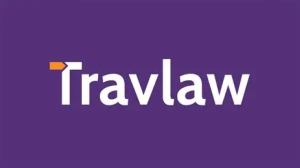Organisers’ Liability Insurance
An exclusive membership benefit for AGTO members.
AGTO has negotiated exclusive rates for all members for a number of insurance products to ensure that all members can continue their business with peace of mind in case of mishaps.
Organisers Liability Insurance is an essential consideration for any group organiser regardless of whether you are organising day trips or international trips
For full details of the policy and other essential information and for a copy of the form please click the below.

It’s each individual traveller’s responsibility to arrange appropriate travel insurance, as well as ensuring that you have read and understood the full terms and conditions of the travel insurance policy that you’ve taken out.
Your travel insurance policy should fully cover you for cancellation and emergency medical expenses and repatriation. Please ensure any travel insurance policy you take out covers the entire duration of your holiday.
EES & ETIAS Update 
Latest Update
The European Union (EU) has recently announced its implementation of the Entry/Exit System (EES) will begin on 12th October 2025. It will be rolled out over a 6-month period, and will be effective at all EU entry and exit points by April 2026.
The related, but separate ETIAS scheme (see below) is likely to begin towards the end of 2026. They have also announced that the fee is likely to increase to €20, rather than the €7 initially planned.
The Change – EES & ETIAS
The European Union Entry/Exit System (EES) is a new system for registering non-EU nationals when they enter and exit the Schengen Zone (the European countries which have removed internal border checks). All non-EU nationals will need to have their photograph and fingerprints taken, and passport scanned, on every entry and exit.
The European Travel Information and Authorization System (ETIAS) will be a new system to pre-authorise and monitor non-EU nationals from visa-exempt countries electronically when entering and exiting the EU.
In short, you can think of ETIAS as the pre-authorisation for travel to the EU, and EES as the physical checks on entry and exit. The changes are intended to improve border control, and internal security in the EU, as well as identifying those exceeding their rights to stay within the EU.
Note however, that neither EES nor ETIAS will apply to travel to the Republic of Ireland.
Practicalities – EES
EES kiosks (similar to those UK passengers will be familiar with at UK airports) will be present at every entry point (airports, ports, train terminals) with links from outside the EU. Each passenger will have to enter a kiosk, to have their photograph and fingerprints (known as biometric data) taken, along with other personal information such as full name, date of birth, which is associated with the travellers passport. It is also worth noting if you refuse to provide your biometric data upon arrival, you will be denied entry into the territory of European countries using EES!
It is estimated that an individual’s first use of an EES kiosk should take around 75 seconds. Subsequent uses of the EES kiosk should be quicker, as the biometric data will only need to be verified against the personal passport information. This digital record will be valid for 3 years.
There will be 3 ‘international stations’ in the UK, at the Port of Dover, Le Shuttle terminal (previously known as Eurotunnel) in Folkestone, and the Eurostar terminal at St Pancras station. These will allow the EES formalities to be completed before the passenger embarks on their train or ferry crossing to the Continent.
See previous article for the practicalities of ETIAS.
The Importance for Tour Operators and Travel Organisers
While all the responsibility for complying with EES and ETIAS will be on the traveller themselves, tour operators and travel organisers will need to be pro-active and plan ahead in order to avoid disruption. There are concerns that the extra time that EES check will take (particularly at ferry ports) could lead to long queues and significant delays (at least initially). Where travelling by coach, all passengers will have to disembark to use the EES kiosks – a much more time consuming than the current practice of handing passports over while staying on board. Passengers arriving without a valid ETIAS may be refused entry into their arrival country, and may need to be repatriated.
Travlaw’ Suggestions for Best Practice Are:
- Ensure all passengers are provided with information about the requirements from an early stage (ideally before booking), and repeatedly before travel, so that passengers are fully prepared.
- Make clear to passenger that it is their responsibility to comply.
- Recommend that passengers apply for ETIAS before booking travel (if available) or well before departure (say 1 month before) – do not leave it to the last minute!
- For Tour Operators, ensure that your Booking Conditions are up to date and mention ETIAS.
- Build in extra time for border crossing formalities, both for entry and exit from the EU.


